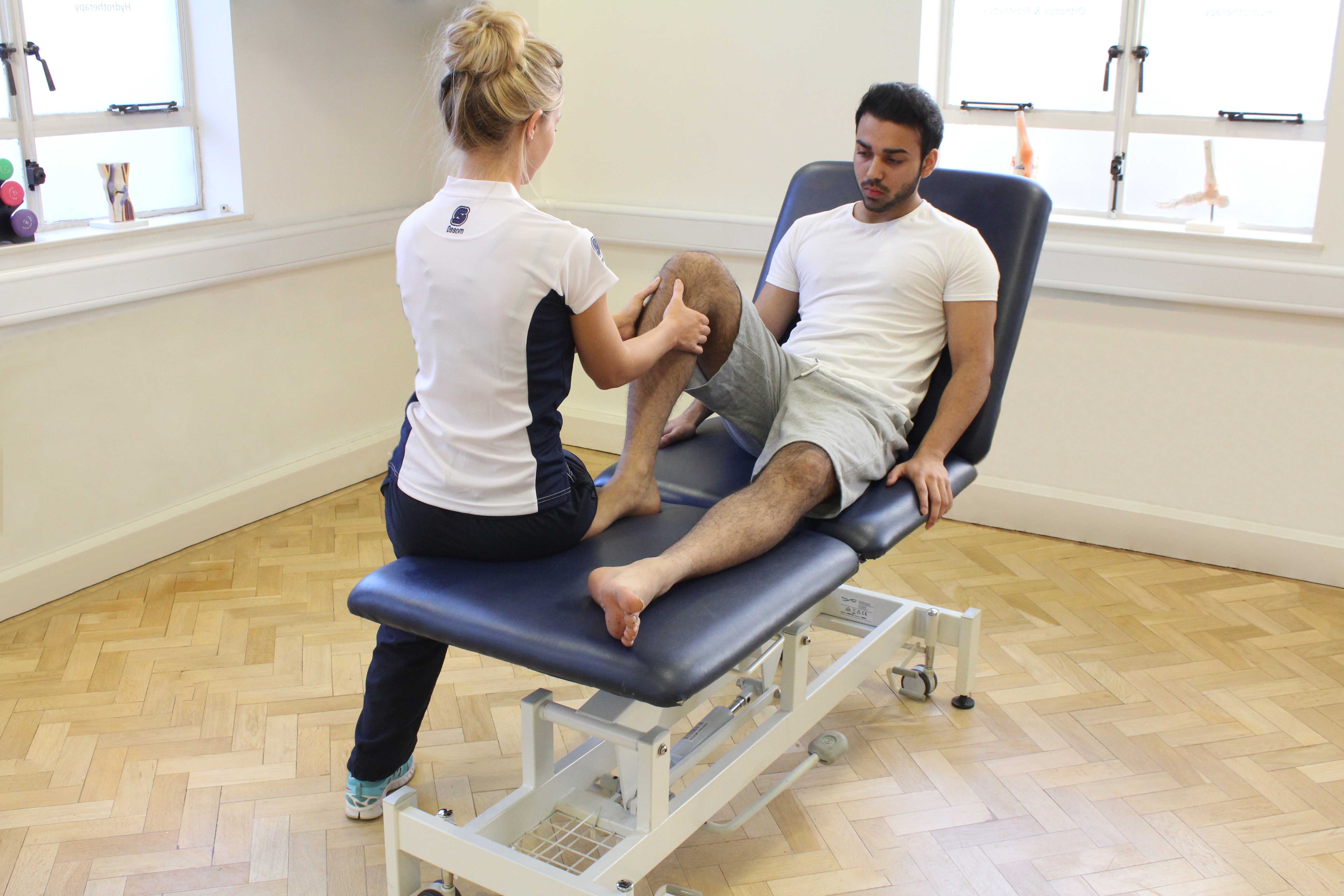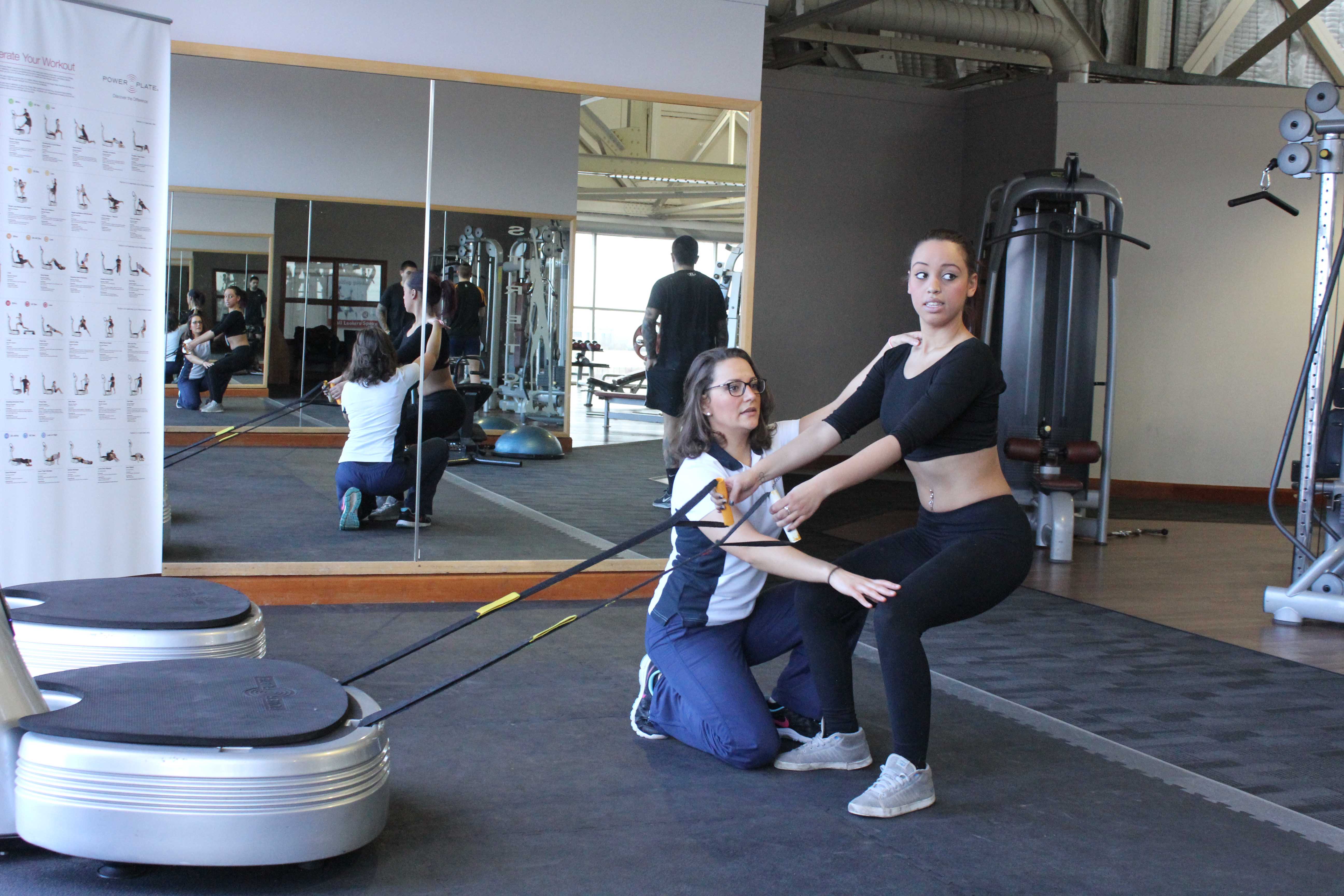What is Osgood-Schlatter’s disease?
Osgood-Schlatter’s disease is a condition largely seen in adolescent males. It causes pain and swelling on the bony prominence about an inch below the kneecap. Physiotherapy is an important treatment for Osgood-Schlatter’s disease.
How does Osgood-Schlatter’s disease happen?
It is thought that overuse of the quadriceps muscles, on the front of the thigh, can cause Osgood-Schlatter’s disease. The quadriceps muscles act to straighten the knee. To do this, the muscles are attached to the patella (kneecap) and the kneecap is attached to the top of the shin bone by a thick band of tissue called the patella tendon.
Overuse of the quadriceps muscles can cause repeated stress and strain on the bony prominence where the patella tendon attaches onto the shin bone. This stress and strain can cause inflammation, pain and new bone to be formed. In some cases, tiny fractures can develop at the attachment of the patellar tendon.
Osgood-Schlatter’s disease is most common in teenagers who play a lot of sports requiring repeated strong contractions of the quadriceps muscles (ie. involving kicking, running, and jumping). It is rarely seen after the age of sixteen.
 Above: Therapist performing knee assessment
Above: Therapist performing knee assessmentWhat are the symptoms of Osgood-Schlatter’s?
The main symptom associated with Osgood-Schlatter’s disease is pain on the bony prominence a few centimetres below the kneecap. Pain can often vary in severity from day to day, and is often worse during, or just after activity. Pain tends to ease with rest. Symptoms generally last a few months but, in some cases, can last until growth stops.
A small, tender, bony bump may develop a few centimetres below the kneecap. This occurs where the patella ligament attaches to the tibia ('shin bone'). Other symptoms include:
What should I do if my child has Osgood-Schlatter’s?
If your child has a painful lump below one or both of his kneecaps then you should arrange a physiotherapy appointment as soon as possible. In the meantime, you should limit their participation in sporting activities. To help reduce pain and swelling you can apply ice to the painful area. Ideally, this should be a bag of frozen peas or crushed ice wrapped in a damp cloth.
What shouldn’t I do if my child has Osgood-Schlatter’s disease?
If you think your child may have Osgood-Schlatter’s disease, you shouldn’t encourage them to exercise through the pain. This may make their injury worse, prolonging their recovery.
 Above: Progressive knee strengthening exercises supervised by therapist
Above: Progressive knee strengthening exercises supervised by therapistPhysiotherapy for Osgood-Schlatter’s disease.
Your physiotherapist will be able to diagnose your child’s problem at the initial assessment. Following the assessment, they will be able to devise an appropriate treatment plan. Treatment may involve:
Could there be any long-term effects from Osgood-Schlatter’s disease?
Osgood-Schlatter’s disease is a condition that settles as growth ceases. This can take from two months to two years to completely resolve. Osgood-Schlatter’s will not interfere with your child’s growth. The only long-term effect is the small bump just below the kneecap which, in time, becomes painless.
To arrange a physiotherapy appointment call Physio.co.uk on 0330 088 7800 or book online.

 0330 088 7800
0330 088 7800


































